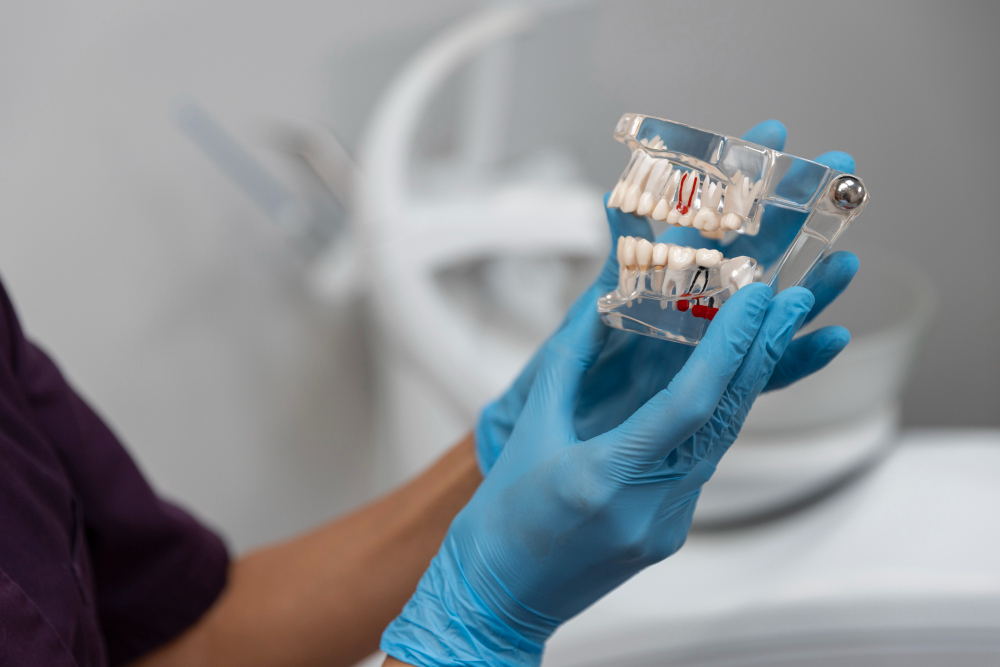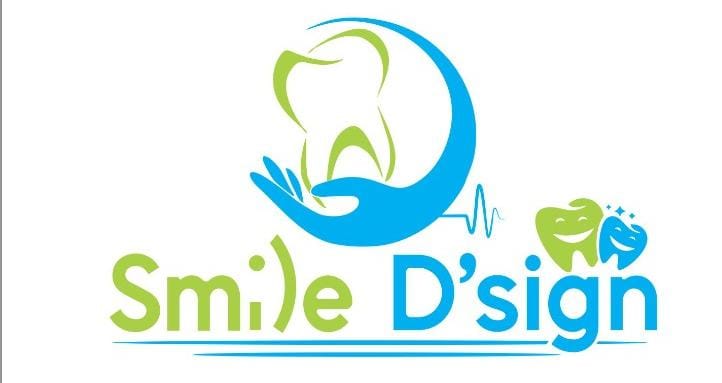Dental Bridges

Dental bridges are an effective solution for replacing missing teeth, helping to restore both the function and appearance of your smile. At Smile Dsign, we offer high-quality dental bridges designed to provide a natural look and feel, improving your ability to chew, speak, and smile confidently.
The Process
Consultation and Assessment: The process begins with a thorough dental examination, including X-rays and impressions, to determine the best type of bridge for your specific needs. This step helps in planning the most suitable treatment approach.
Tooth Preparation: If adjacent teeth (abutment teeth) are used to support the bridge, they are prepared by removing a portion of enamel to accommodate the crowns that will hold the bridge in place.
Impression Taking: An impression of the prepared teeth is taken to create a custom-fit bridge. This ensures that the bridge fits perfectly and functions correctly within your mouth.
Temporary Bridge: While the permanent bridge is being fabricated, a temporary bridge is placed to protect the prepared teeth and maintain your smile’s appearance.
Permanent Bridge Placement: Once the custom bridge is ready, it is checked for fit and aesthetics. Necessary adjustments are made before the bridge is permanently cemented in place.
Benefits
Restoration of Function: Dental bridges restore your ability to chew and speak properly, improving your overall oral function and quality of life.
Aesthetic Enhancement: Bridges fill the gaps left by missing teeth, enhancing the appearance of your smile and providing a natural look that blends seamlessly with your existing teeth.
Prevention of Tooth Movement: Missing teeth can cause adjacent teeth to shift out of position, leading to bite problems and potential oral health issues. A dental bridge helps maintain the proper alignment of your teeth.
Durability and Longevity: Made from high-quality materials, dental bridges are durable and can last many years with proper care, providing a long-term solution for missing teeth.
Types of Dental Bridges
Traditional Bridges: The most common type, traditional bridges consist of one or more pontics (artificial teeth) held in place by dental crowns on the adjacent teeth. These are typically made of porcelain fused to metal or ceramics.
Cantilever Bridges: Used when there are adjacent teeth on only one side of the missing tooth or teeth. This type of bridge is less common and used in specific situations.
Maryland Bridges: Also known as resin-bonded bridges, these use a metal or porcelain framework bonded to the back of the adjacent teeth. They are a more conservative option as they require less preparation of the adjacent teeth.
Implant-Supported Bridges: This type of bridge is supported by dental implants rather than natural teeth. It is a good option when multiple teeth are missing, offering a stable and long-lasting solution.
Post-Treatment Care
Good Oral Hygiene: Maintain a regular brushing and flossing routine to keep your teeth and gums healthy. Special floss threaders or interdental brushes can help clean around the bridge.
Regular Dental Check-Ups: Visit your dentist regularly for check-ups and professional cleanings to monitor the health of your bridge and surrounding teeth.
Diet Considerations: Avoid biting down on hard foods and objects that could damage the bridge. Eating a balanced diet helps maintain overall oral health.
Prompt Attention to Issues: If you notice any discomfort, looseness, or damage to your bridge, contact your dentist promptly to address any issues before they worsen.
At Smile Dsign, we are dedicated to providing high-quality dental bridges that restore both function and aesthetics to your smile. Our experienced team uses the latest techniques and materials to ensure the best possible outcomes for our patients. Contact us today to learn more about our dental bridge options and how we can help you achieve a complete and beautiful smile.

